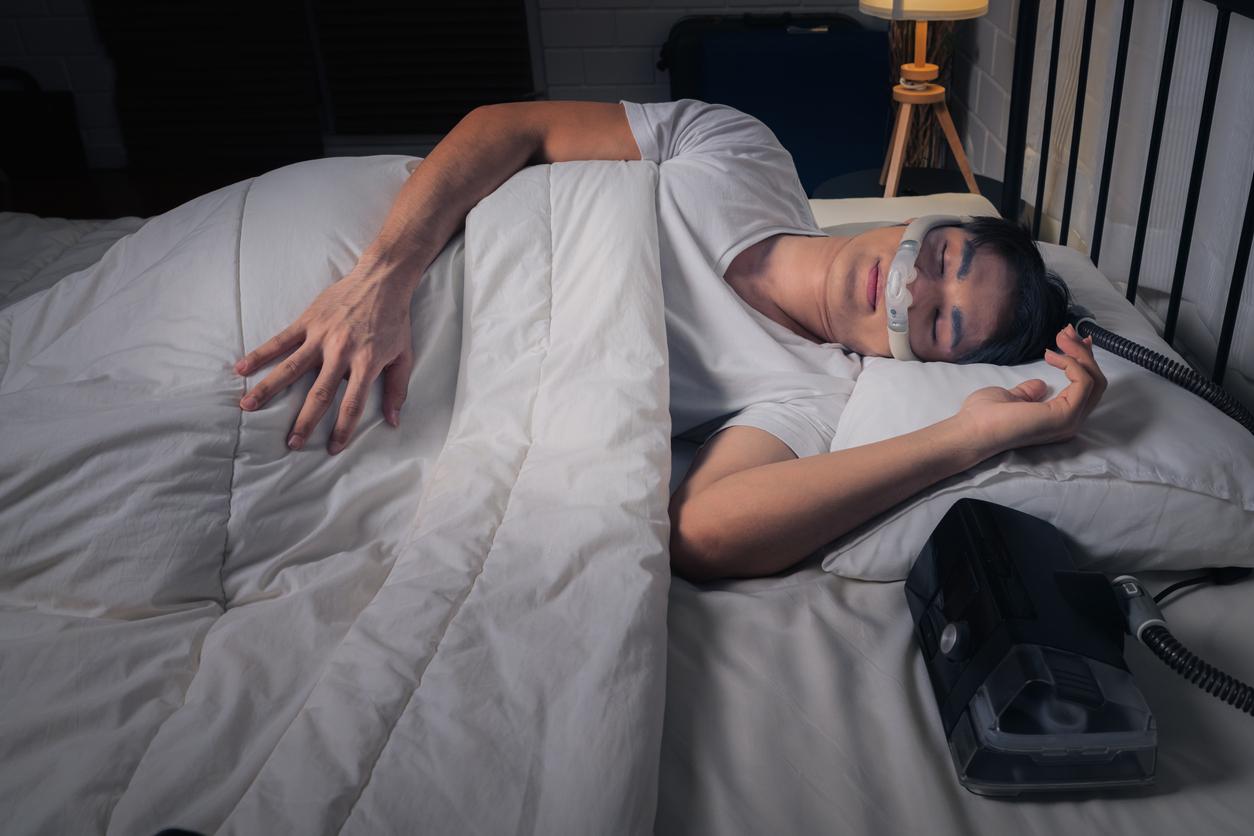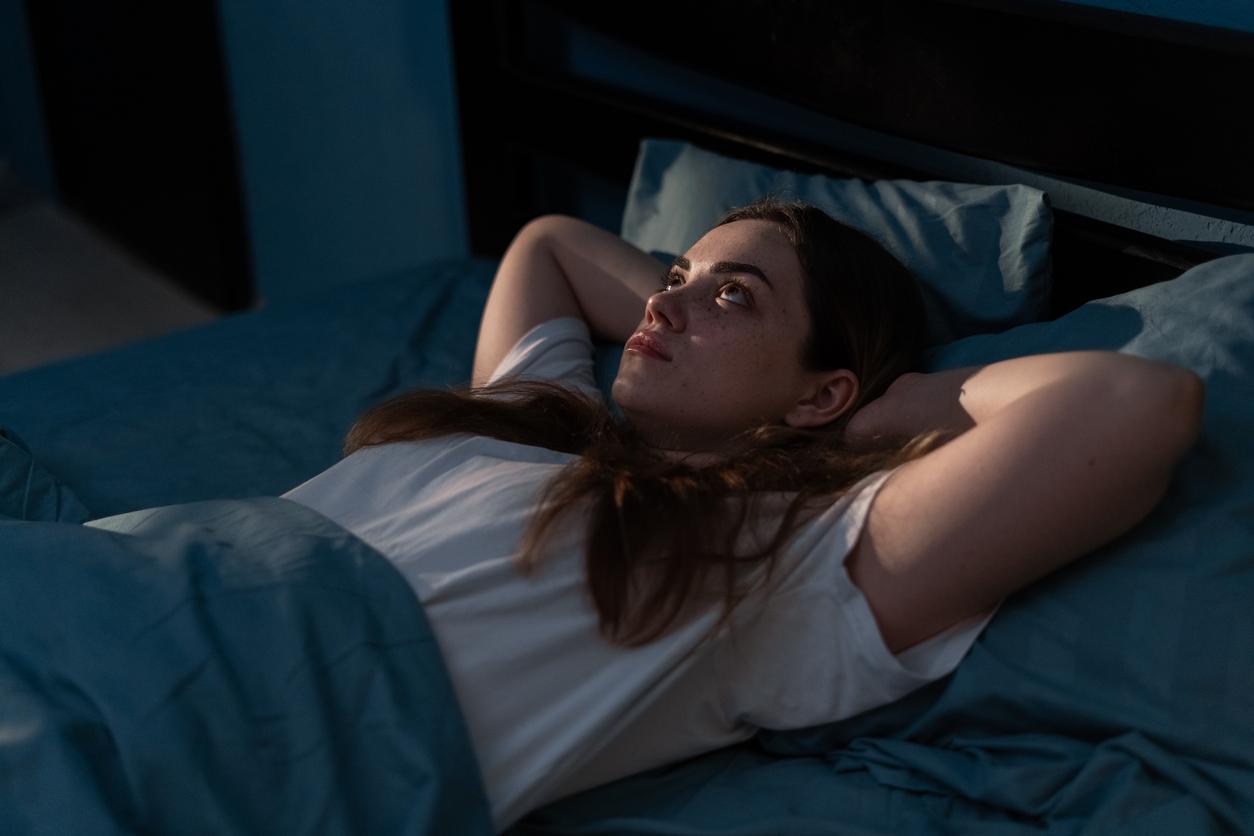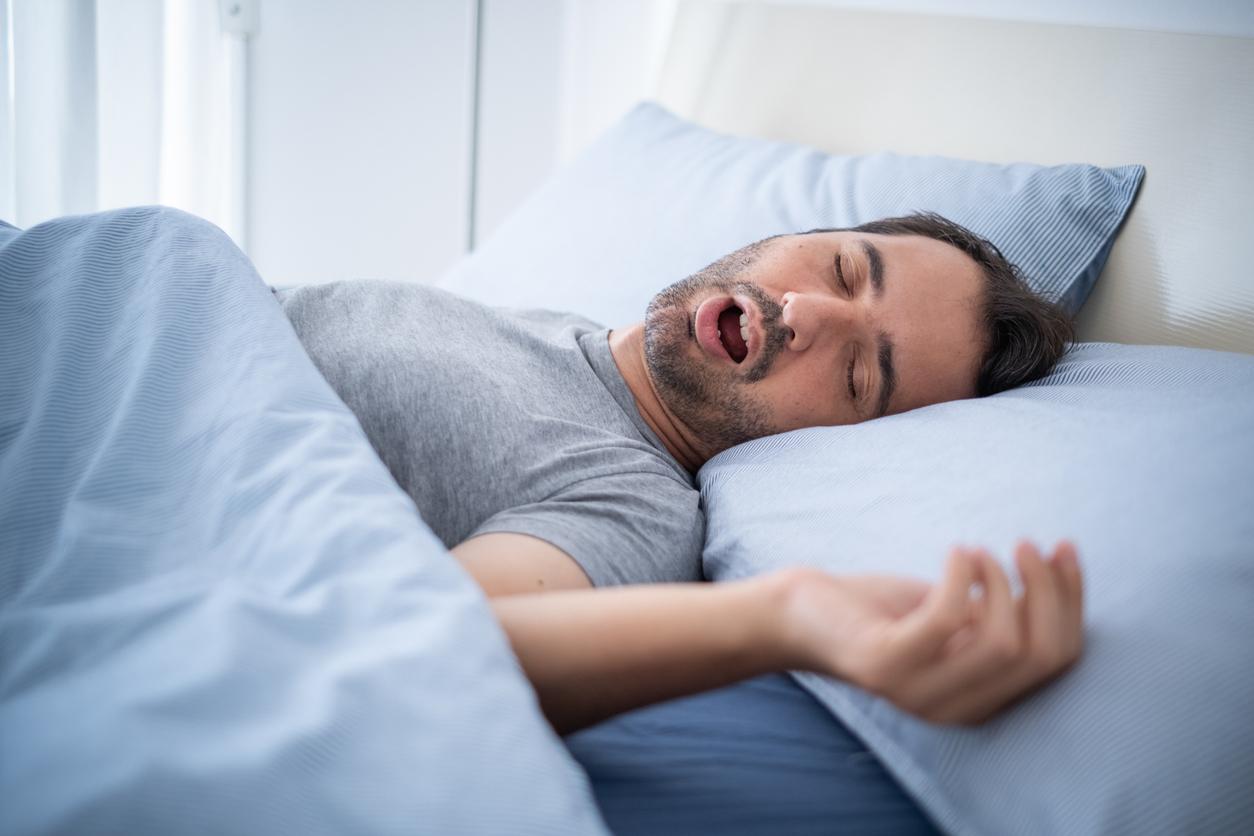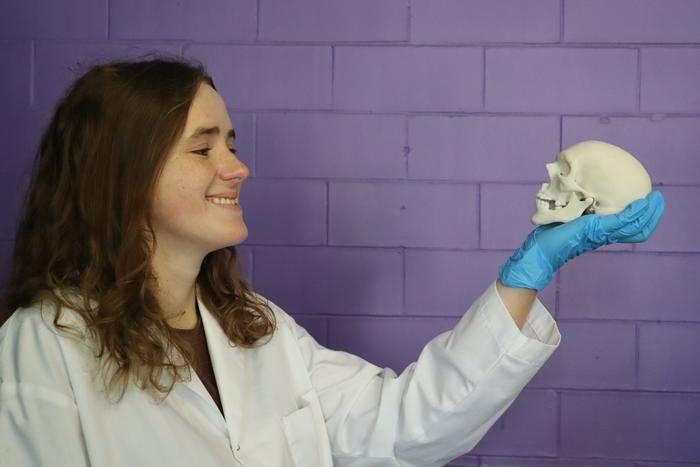In the United Kingdom, researchers tested the effects of a lingual implant on obstructive sleep apnea. The first results are promising.
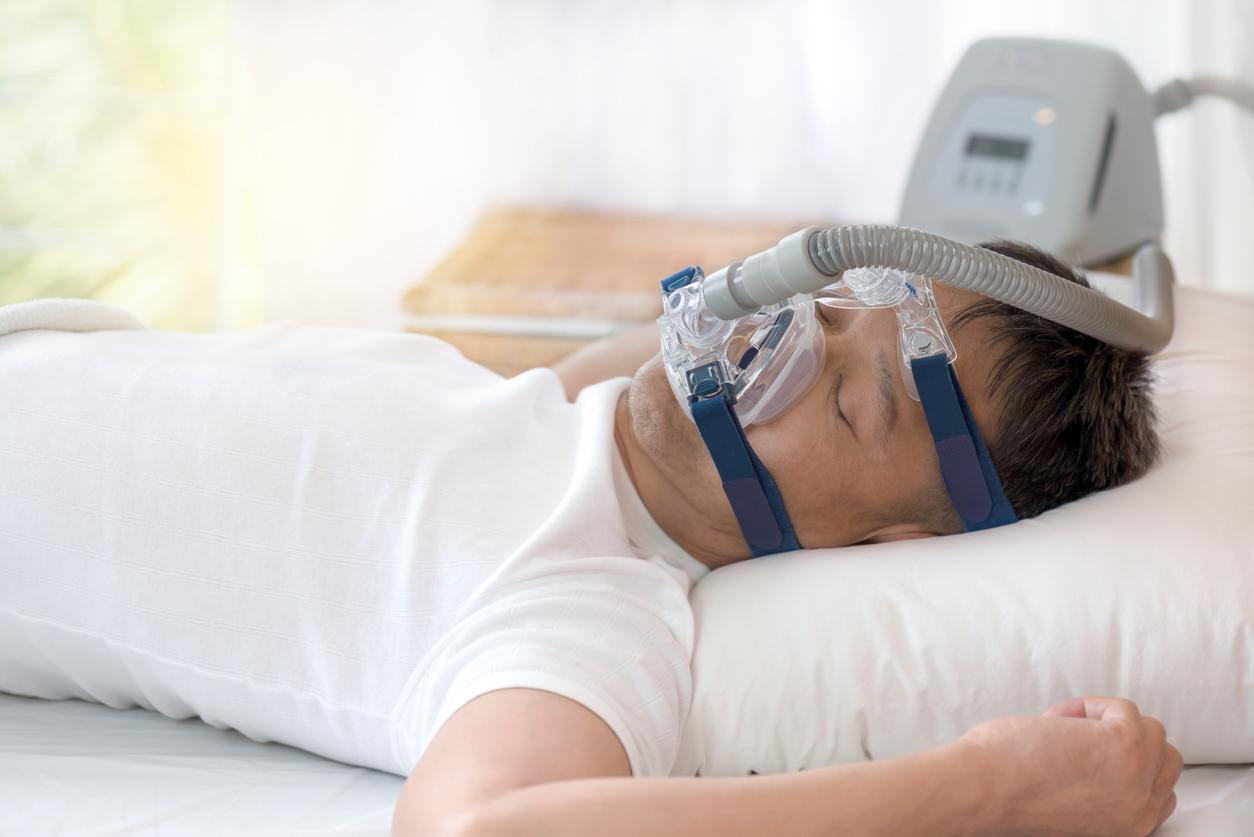
- In the United Kingdom, scientists tested a tongue implant to control sleep apnea.
- The results are encouraging and could help patients who cannot tolerate PCC.
- PCC is the most common method of treating sleep apnea.
Drowsiness, difficulty concentrating, memory or mood problems: sleep apnea can have significant consequences on the quality of life of those affected. According to theInsermthis syndrome affects 30% of people over 65. In the United Kingdom, an experiment was carried out within the hospitals of University College London (UCL): using a lingual implant, called Genio and designed by the company Nyxoah, patients were able to breathe without hindrance during their sleep.
Sleep apnea: an alternative to CPAP machines
“This is a marked improvement in the care offered to these patients, whose current first-line treatment is continuous positive airway pressure (CPAP).explains UCL on its site. CPAP is a machine that requires users to wear a mask at night to receive pressurized air, and many patients have difficulty getting used to sleeping with this machine.”
Act on tongue movements to reduce sleep apnea
This new technology tested by researchers is based on the use of an implant. Two types of devices have been tested, but they work the same way: they act on the hypoglossal nerve, whose role is to control the muscles of the tongue. “A device is surgically implanted under the patient’s chin and is managed by the patient so that gentle pulses move the tongue forward to keep the upper airway open throughout the night and improve the quality of breathing and sleep at night”specify the researchers. Patients can control the implant using a smartphone app to adjust the stimulation level. “The stimulator is controlled by an external chip which is stuck to the chin using an adhesive patch before the patient falls asleepdetails The Guardian. During the day, the patch can be removed and the chip recharged.”

Sleep apnea: who could benefit from these implants?
On the UCL website, Natalie Boller, 63, testifies. She has suffered from sleep apnea for around ten years and could not tolerate PCC. Thanks to the implant, she says she felt better in a few days. “I’m very optimistic about the way things are moving forward, and I hope that we will be able to make this technology and this implant more accessible to patients.”says Ryan Chin Taw Cheong, ENL consultant and sleep surgeon, in an interview with Tea Guardian.
The implant is reserved for people with moderate to very severe sleep apnea, with a body mass index below 35. They must have previously tried using a CPAP machine. “This procedure is only suitable for a small number of patients who meet strict selection criteria and have been optimized by their doctors, with demonstrable PCC failure.”underlines this professional.








